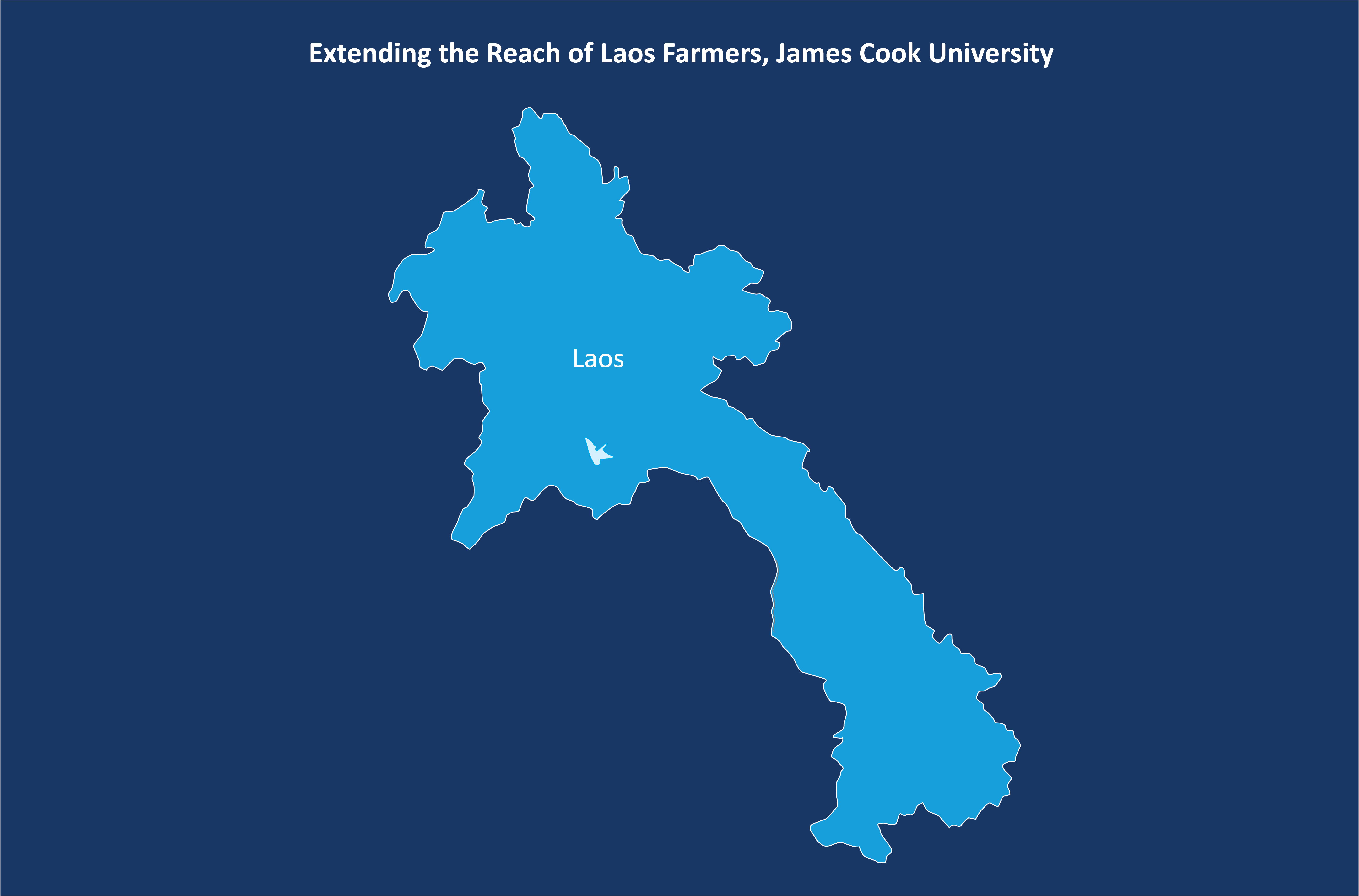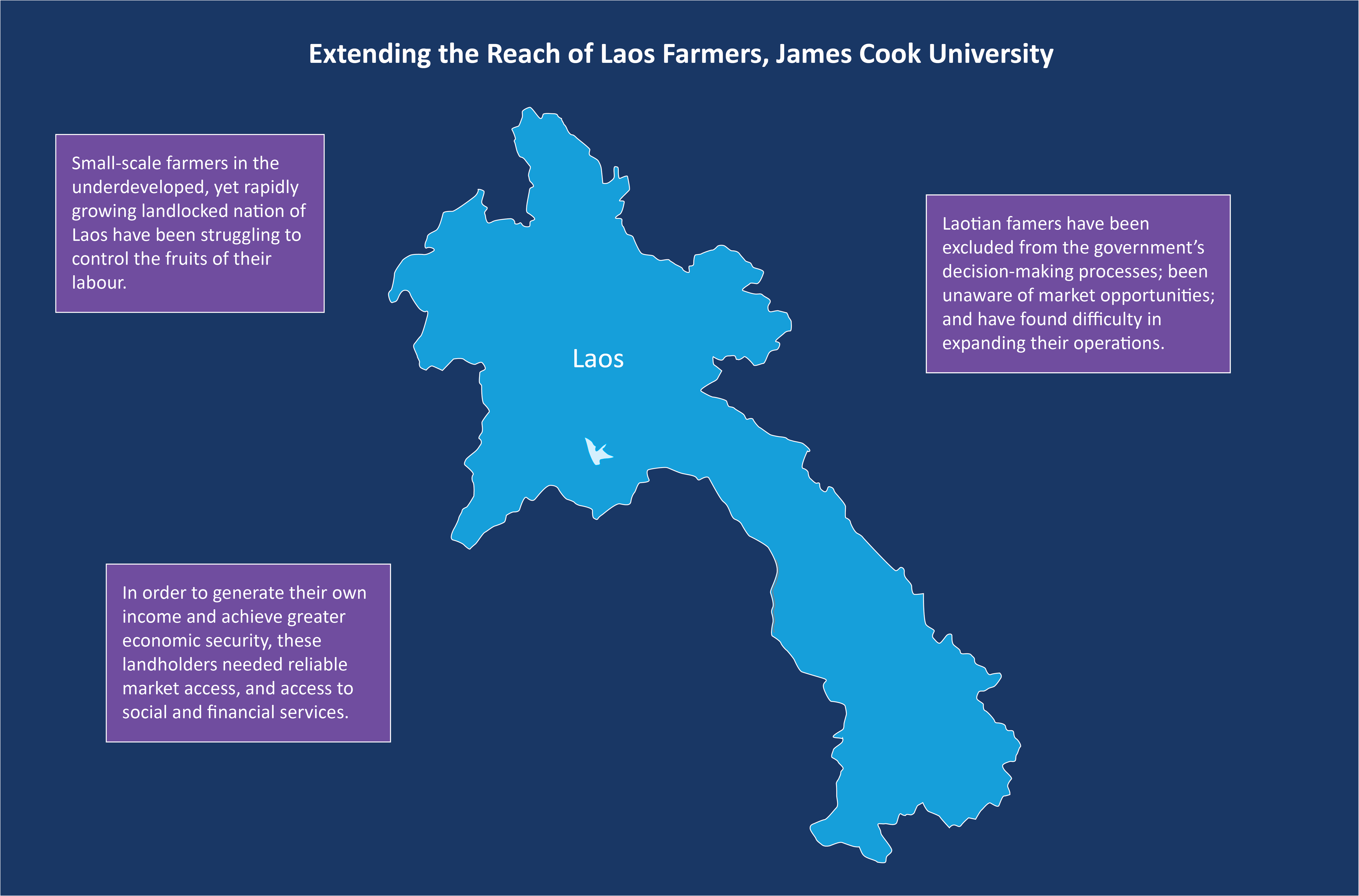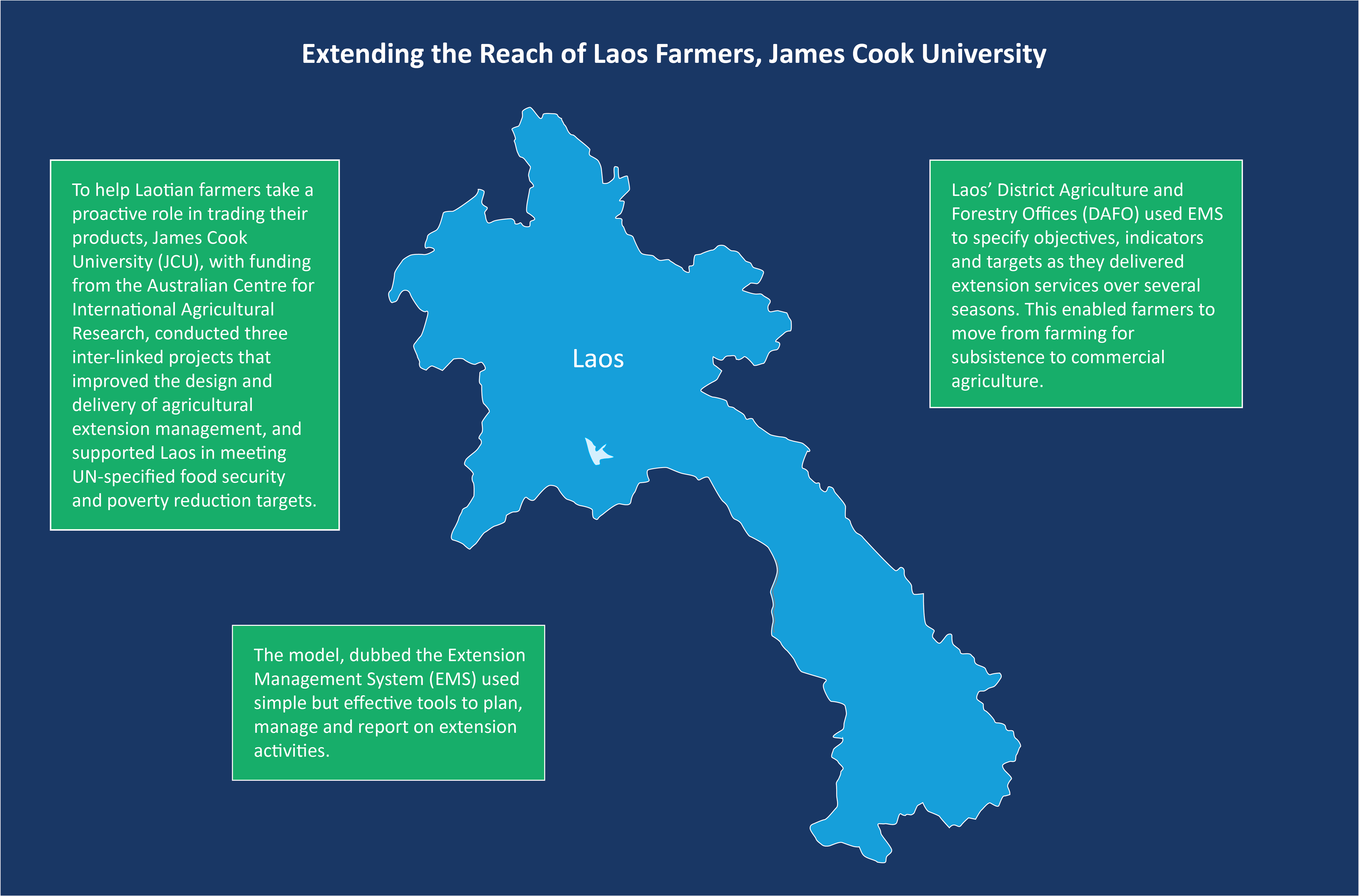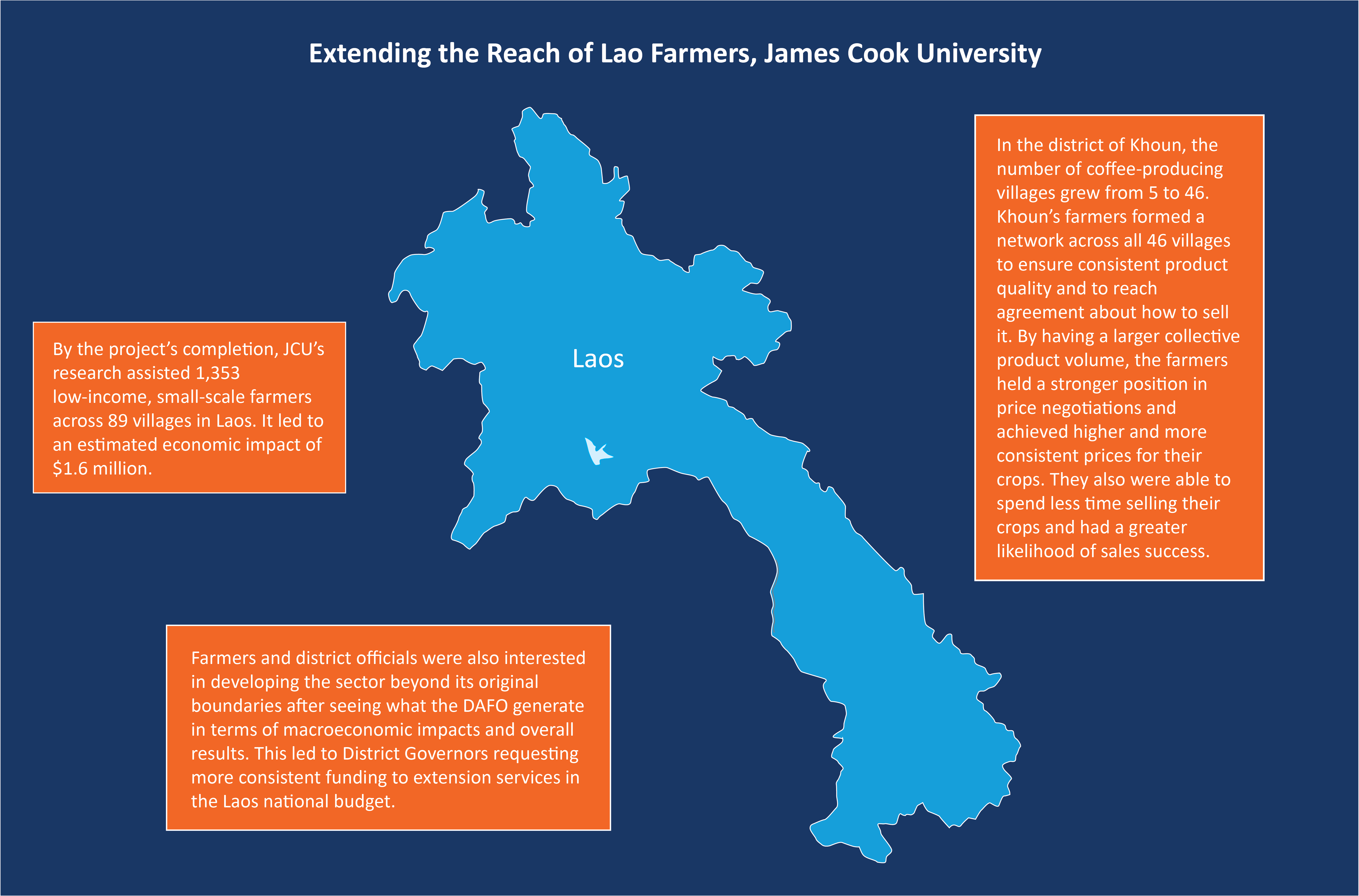James Cook University (JCU) Business School
The Challenge
Small-scale farmers in Laos were often excluded from decision-making, were unaware of market opportunities and found expanding their operations difficult.
Research Impact Summary
- Application of an Extension Management System (EMS) provided a new operational ecology for government agriculture extension staff, resulting in significant enhancement of their performance and producing direct impacts on smallholder farmer production and livelihoods.
- Improved agricultural extension service delivery using the EMS assisted 1,353 low-income, small-scale farmers across 89 villages in Laos. It led to an estimated economic impact of $1.6 million.
- Smallholders were assisted to form farmer organisations in order to achieve higher and more consistent prices for their crops.
- With larger product volume and more consistent quality, the farmers held a stronger position in price negotiations.
- Farmers spent less time selling their crops and had a greater likelihood of sales success.
Needing Technical and Organisational Know How
The Lao People’s Democratic Republic is an under-developed yet rapidly growing landlocked nation bordered by Vietnam, Thailand, China and Cambodia. Most small-scale farmers still subsist on rice and livestock production. While many models of improved production have been demonstrated by various projects, the government extension services have lack the technical and organisational capacity to deliver these widely.
Three related projects enabled the extension staff to shift from a technical support focus to the application of new integrated extension approaches which, amongst other outcomes, enabled farmers to appreciate market opportunities. Once farmers registered market demand for high volumes of their products, they recognised households needed to combine their output for joint sale. This led to informal farmer groups to coordinate their farming, marketing and sales activities.
New Management Model
Designed and tested by the JCU-led team in collaboration with Lao staff, the new management model for the delivery of agricultural extension services to small-scale Lao farmers was funded by the Australian Centre for International Agricultural Research (ACIAR). The ultimate goal was to improve long-term agricultural productivity throughout the country as part of the Lao government’s efforts to meet UN-specified food security and poverty reduction targets.
The EMS model included simple but effective tools to plan, manage and report on extension activities. Front-line extension units and District Agriculture and Forestry Offices (DAFO) used EMS to specify objectives, indicators and targets as they delivered extension services over several seasons.

Pilot District Impact
In all these pilot districts substantial impacts were achieved, with the various products (rice, vegetables, poultry and coffee) set on the path to become new commercial products for those District. The most notable socio-economic impacts occurred in Khoun District of Xieng Khuang Province, where the number of coffee-producing villages grew from 5 to 46. With project support, Khoun farmers formed a network across all 46 villages to ensure consistent product quality and formed agreements with traders on selling procedures. Informal group leaders developed a strategy to attract and negotiate collectively with investors who had access to high quality—and therefore high price—markets located beyond the normal reach of the villages.
The EMS required the DAFO staff to formulate their objectives in terms of District or macro level impacts. This shifted them from a preoccupation with technical support, to one of results-orientation. Once staff saw that the new approaches were effective, their motivation and commitment was significantly enhanced. The benefits of EMS were also recognised by senior officials in Lao government at central, provincial and district levels. The interest generated by EMS has yielded sustainable impacts that have moved beyond the original remit and life of the project. For example, District Governors who recognised that the results were sufficiently robust to justify more consistent funds from the Lao national budget for extension services. Staff participating in the project have continued to apply EMS tools and principles in other projects and other sites.
Share
Explore our other communications & learn more
We’ve collated all of our communications into the one place for your consideration, click one of the below buttons to explore each category.



